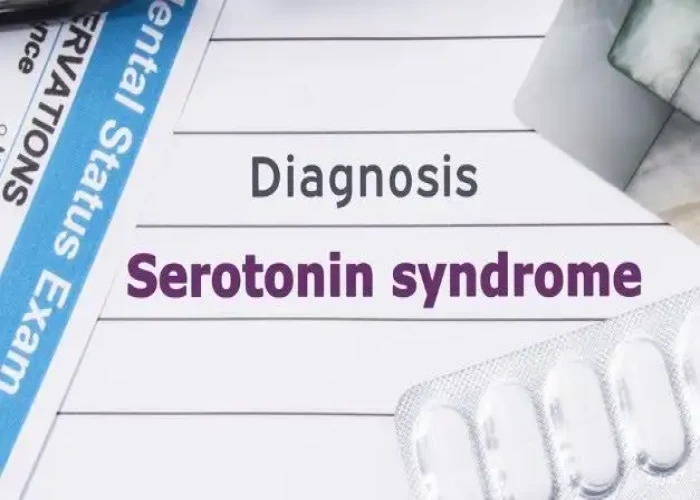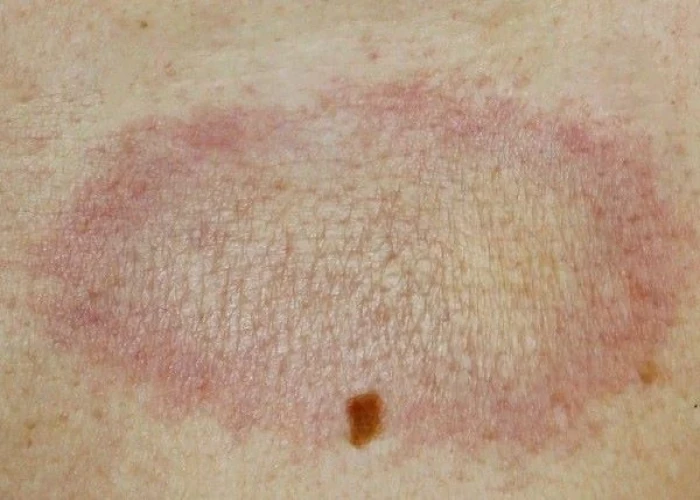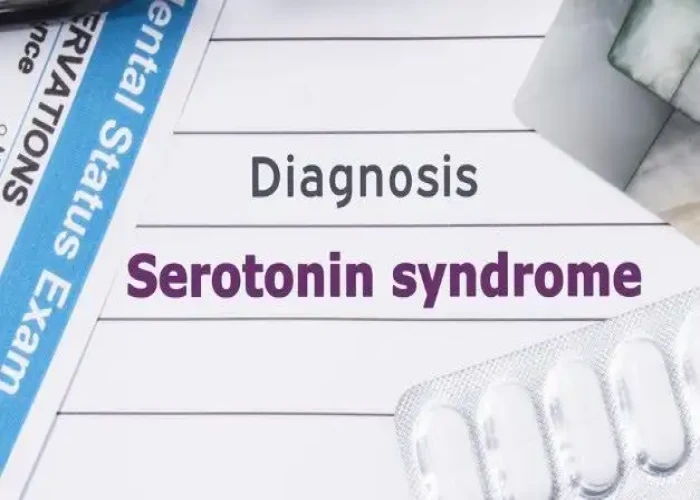 Welcome
Welcome
“May all be happy, may all be healed, may all be at peace and may no one ever suffer."
Serotonin syndrome

Serotonin syndrome is a potentially life-threatening condition caused by an excess of serotonin in the body. Serotonin is a neurotransmitter that regulates mood, appetite, and other bodily functions. Serotonin syndrome usually occurs as a result of taking medications that increase serotonin levels, such as selective serotonin reuptake inhibitors (SSRIs), monoamine oxidase inhibitors (MAOIs), or certain opioid pain medications.
Symptoms of serotonin syndrome may include:
- Agitation or restlessness
- Confusion
- Rapid heart rate
- Dilated pupils
- High blood pressure
- Fever
- Sweating
- Diarrhea
- Muscle stiffness or twitching
- Loss of coordination
- Seizures
Serotonin syndrome can be a medical emergency and requires prompt treatment. Treatment typically involves discontinuing the medication that is causing the symptoms, along with supportive care to manage symptoms. In severe cases, hospitalization and intensive care may be required. It is important to seek medical attention immediately if you or a loved one is experiencing symptoms of serotonin syndrome, particularly if taking medications that increase serotonin levels.
Research Papers
Disease Signs and Symptoms
- Anxiety, agitation or restlessness
- Seizures
- Tremors or muscle jerking
- Fever
- Skin bumps
- Headaches
- Diarrhea
- Heavy sweating (diaphoresis)
- Rapid heartbeat (tachycardia)
- High blood pressure (hypertension)
- Confusion (Hallucinations)
- Trouble sleep (insomnia)
- Irregular heartbeats (arrhythmia)
Disease Causes
Serotonin syndrome
Excessive accumulation of serotonin in the body creates the symptoms of serotonin syndrome.
Typically, nerve cells in the brain and spinal cord produce serotonin that helps regulate attention, behavior and body temperature.
Other nerve cells in the body, primarily in the intestines, also produce serotonin. Serotonin plays a role in regulating the digestive process, blood flow and breathing.
Although it's possible that taking just one drug that increases serotonin levels can cause serotonin syndrome in some people, this condition occurs most often when people combine certain medications.
For example, serotonin syndrome may occur if you take an antidepressant with a migraine medication. It may also occur if you take an antidepressant with an opioid pain medication.
Another cause of serotonin syndrome is intentional overdose of antidepressant medications.
A number of over-the-counter and prescription drugs may be associated with serotonin syndrome, especially antidepressants. Illicit drugs and dietary supplements also may be associated with the condition.
The drugs and supplements that could potentially cause serotonin syndrome include:
- Selective serotonin reuptake inhibitors (SSRIs), antidepressants such as citalopram (Celexa), fluoxetine (Prozac), fluvoxamine (Luvox), escitalopram (Lexapro), paroxetine (Paxil, Pexeva, Brisdelle) and sertraline (Zoloft)
- Serotonin and norepinephrine reuptake inhibitors (SNRIs), antidepressants such as desvenlafaxine (Pristiq), levomilnacipran (Fetzima), milnacipran (Savella), duloxetine (Cymbalta, Drizalma Sprinkle) and venlafaxine (Effexor XR)
- Bupropion (Zyban, Wellbutrin SR, Wellbutrin XL), an antidepressant and tobacco-addiction medication
- Tricyclic antidepressants, such as amitriptyline and nortriptyline (Pamelor)
- Monoamine oxidase inhibitors (MAOIs), antidepressants such as isocarboxazid (Marplan) and phenelzine (Nardil)
- Anti-migraine medications, such as carbamazepine (Tegretol, Carbatrol, others), valproic acid and triptans, which include almotriptan, naratriptan (Amerge) and sumatriptan (Imitrex, Tosymra, others)
- Pain medications, such as opioid pain medications including codeine, fentanyl (Duragesic, Abstral, others), hydrocodone (Hysingla ER), meperidine (Demerol), oxycodone (Oxycontin, Roxicodone, others) and tramadol (Ultram, ConZip)
- Lithium (Lithobid), a mood stabilizer
- Illicit drugs, including LSD, ecstasy, cocaine and amphetamines
- Herbal supplements, including St. John's wort, ginseng and nutmeg
- Over-the-counter cough and cold medications containing dextromethorphan (Delsym)
- Anti-nausea medications such as granisetron (Sancuso, Sustol), metoclopramide (Reglan), droperidol (Inapsine) and ondansetron (Zofran)
- Linezolid (Zyvox), an antibiotic
- Ritonavir (Norvir), an anti-retroviral medication used to treat HIV
Disease Prevents
Serotonin syndrome
Taking more than one serotonin-related medication or increasing your dose of a serotonin-related medication increases your risk of serotonin syndrome. Know what medications you take and share a complete list of your medications with your doctor or pharmacist.
Be sure to talk to your doctor if you or a family member has experienced symptoms after taking a medication.
Also talk to your doctor about possible risks. Don't stop taking any medications on your own. If your doctor prescribes a new medication, make sure he or she knows about all the other medications you're taking, especially if you receive prescriptions from more than one doctor.
If you and your doctor decide the benefits of combining certain serotonin-level-affecting drugs outweigh the risks, be alert to the possibility of serotonin syndrome.
Disease Treatments
Treatment of serotonin syndrome depends on the severity of your symptoms.
- If your symptoms are minor, a visit to the doctor and stopping the medication causing the problem may be enough.
- If you have symptoms that concern your doctor, you may need to go to the hospital. Your doctor may have you stay in the hospital for several hours to make sure your symptoms are improving.
- If you have severe serotonin syndrome, you'll need intensive treatment in a hospital.
Depending on your symptoms, you may receive the following treatments:
- Muscle relaxants. Benzodiazepines, such as diazepam (Valium, Diastat) or lorazepam (Ativan), can help control agitation, seizures and muscle stiffness.
- Serotonin-production blocking agents. If other treatments aren't working, medications such as cyproheptadine can help by blocking serotonin production.
- Oxygen and intravenous (IV) fluids. Breathing oxygen through a mask helps maintain oxygen levels in your blood, and IV fluids are used to treat dehydration and fever.
- Drugs that control heart rate and blood pressure. These may include esmolol (Brevibloc) or nitroprusside (Nitropress) to reduce a high heart rate or high blood pressure.
- If your blood pressure is too low, your doctor may give you phenylephrine (Vazculep) or epinephrine (Adrenalin, Epipen, others).
- A breathing tube and machine and medication to paralyze your muscles. You may need this treatment if you have a high fever.
Milder forms of serotonin syndrome usually go away within 24 to 72 hours of stopping medications that increase serotonin. You may need to take medications to block the effects of serotonin already in your system.
However, symptoms of serotonin syndrome caused by some antidepressants could take several weeks to go away completely. These medications remain in your system longer than do other medications that can cause serotonin syndrome.
Disease Diagnoses
Disease Allopathic Generics
Disease Ayurvedic Generics
Disease Homeopathic Generics
Disease yoga
Serotonin syndrome and Learn More about Diseases

Morphea

Amyloidosis

Molar pregnancy

Polymorphous light eruption

Color blindness

Pruritus Vulva

Urinary tract infection (UTI)

Undifferentiated pleomorphic sarcoma
serotonin syndrome, সেরোটোনিন সিনড্রোম
To be happy, beautiful, healthy, wealthy, hale and long-lived stay with DM3S.
